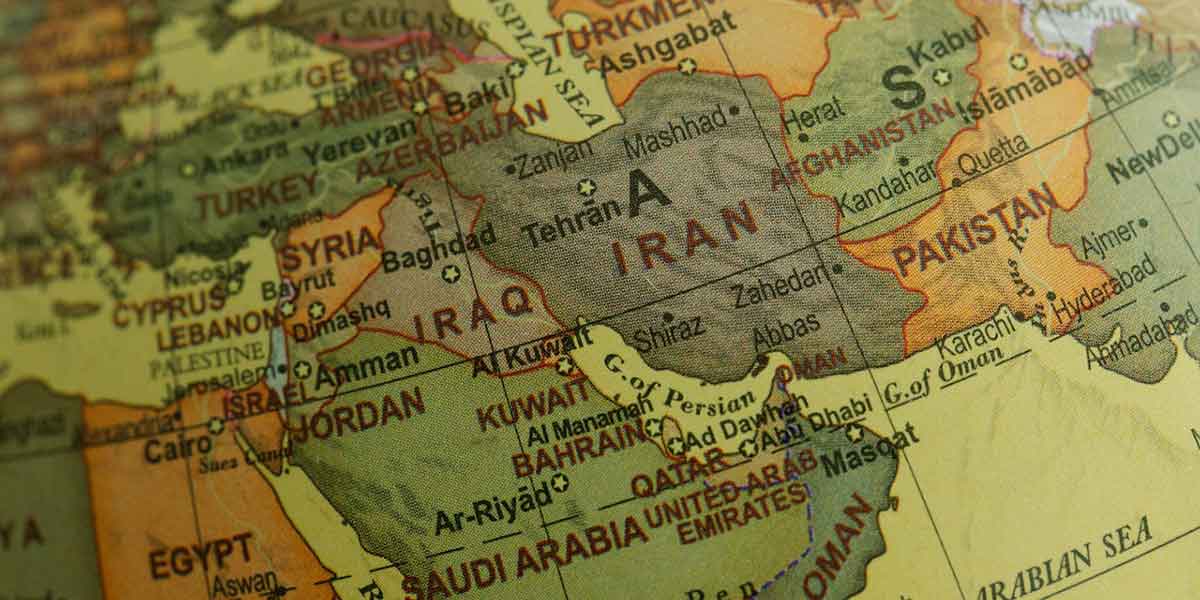Explore the Saudi-Iranian agreement and its implications for regional stability. Understand why scepticism persists regarding its effectiveness in resolving underlying issues.
This guest post is by Atilla Can Ekici. Atilla completed his master's degree at Birkbeck, University of London in 2020. He continues his doctoral education at the University of Plymouth, which he started in 2021 under the guidance of Dr Patrick Holden. His main areas of work are Saudi Arabia, Iran, foreign aid, and the Middle East.
The recent restoration of diplomatic ties between Saudi Arabia and Iran, brokered by China, has sparked a flurry of speculation about its implications for the Middle East. While some have hailed it as a breakthrough, others remain sceptical, arguing that the underlying issues that have fuelled the Saudi Iranian conflict are unlikely to be resolved through a single diplomatic agreement.
A hollow agreement
One such sceptic is Barak Barfi, a former research fellow at the New America think tank and a former visiting fellow at the Brookings Institution, who recently published an article in Project Syndicate titled "The Hollow Saudi-Iranian Agreement." In his piece, Barfi argues that the restored diplomatic ties between Saudi Arabia and Iran are unlikely to lead to a significant shift in the balance of power in the region and may even exacerbate tensions in the short term.
In this post, we will take a closer look at Barfi's arguments and examine the reasons behind his scepticism about the Saudi-Iranian agreement. We will also consider the broader implications of the agreement for regional stability and China's role in Middle Eastern politics.
No shifts in the balance of power
Barak Barfi's article argues that the recent restoration of diplomatic ties between Saudi Arabia and Iran, brokered by China, is unlikely to lead to a significant shift in the balance of power in the region, and may even exacerbate tensions in the short term.
Barfi highlights several reasons for his scepticism, including the deep-seated religious and geopolitical differences between the two countries, the lack of trust and confidence between them, and the absence of a broader regional agreement to address their disputes.
He also questions China's ability to act as a mediator in the Middle East, given its limited experience and influence in the region. In conclusion, Barfi suggests that the restored diplomatic ties between Saudi Arabia and Iran may be a symbolic gesture rather than a substantive breakthrough, and that the underlying issues that have fuelled their conflict are likely to persist in the long term.
A symbolic gesture
In the article, Barak Barfi states that while the restored diplomatic ties between Saudi Arabia and Iran are a symbolic gesture, it is unclear how long the victory will last for Saudi Crown Prince Mohammed bin Salman (MBS).
He notes that the agreement promises little more than a resumption of normal diplomatic ties, which is less substantive than the Camp David Accords or even the Abraham Accords. Barfi argues that without concrete steps towards reconciliation, backed by external guarantees and supervision, the agreement brokered by China may only serve as a temporary pause in the bilateral tensions between Saudi Arabia and Iran.
A temporary ceasefire
Barak Barfi argues that the Chinese-brokered agreement between Saudi Arabia and Iran can be compared to temporary ceasefires rather than to durable peace agreements such as those brokered by the US between Israel and Arab countries. He cites historical examples such as the 1969 accord between Lebanon and the Palestine Liberation Organization, which granted them a fixed area of operations against Israel but ultimately led to conflict with Lebanon's Christian factions.
He also mentions the February 1994 deal brokered by King Hussein of Jordan between feuding Yemeni leaders, which ultimately led to a brief civil war just a few months later. Barfi suggests that the Saudi-Iranian agreement may follow a similar trajectory without more concrete steps towards reconciliation and external guarantees and supervision.
The shift in China's approach has been positively received by regional actors who hope to finally put an end to a long-standing rivalry that has had significant consequences since the Arab Spring.
The impact of the ongoing rivalry
The ongoing Saudi-Iran rivalry has fuelled proxy wars in Yemen, hindered stabilization efforts in Iraq, contributed to the crisis in Lebanon, and caused a political deadlock in Syria. In 2019, drone and missile attacks on Saudi Arabia and the UAE further eroded Gulf Arab confidence in U.S. guarantees, which were already weakened by the Iran nuclear deal.
These attacks also raised concerns about the effectiveness of the American security architecture in the Middle East. Regional actors view China's promise of peaceful conflict resolution as a potential way to move forward, although this approach has not yet been tested.
Having said that, as Barak pointed out, despite China's efforts, the Persian Gulf remains under American influence. The US Navy's Fifth Fleet is stationed in Bahrain, and the US conducts its regional military operations from Qatar. While there may be tensions between Saudi Arabia and the Biden administration, the kingdom still hosts thousands of US troops and has no intention of allowing a Chinese military presence.
These countries have welcomed the US not only for its advanced weaponry but also because they trust in American security guarantees. If the US continues to offer these benefits, it will be able to maintain its position in the region and keep China at bay.
Conclusion
Barak concludes his article by suggesting that the Saudis will eventually come to the realisation that aligning with China, instead of easing their existential concerns, will make them dependent on China's desires. He implies that the Saudis will return to America's side once they recognise this reality.
As part of Plymouth’s MA International Relations: Security and Development, you’ll study modules such as Economic Diplomacy and Development and Strategy and Security and have the opportunity to discuss issues such as the balance of power in the Middle East. Find out more:
